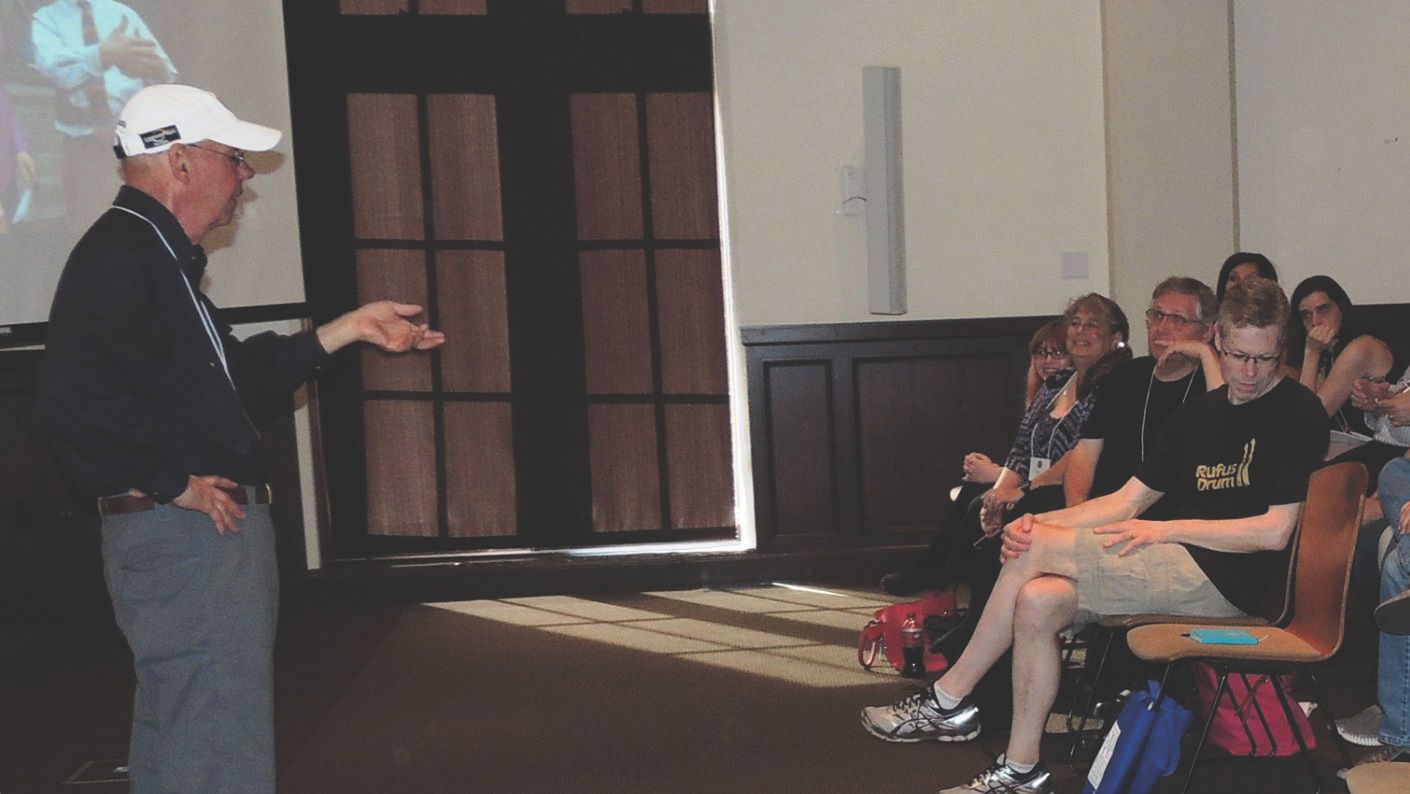Paul Heyer receives the Walter J. Ong Award from the Media Ecology Association


Paul Heyer, a long-running educator and researcher at Wilfrid Laurier University, has been selected as the 2017 recipient of the Media Ecology Association’s (MEA) Walter J. Ong Award for Career Achievement in Scholarship.
The award was presented to Heyer at the 18th annual convention of the MEA, held from June 22 to 25 in San Francisco.
The MEA, created in 1998, is a not-for-profit organization that aims to promote media ecology in “educational, industry, political, civic, social, cultural and artistic contexts.”
The organization created the Ong Award in memory of scholar Walter J. Ong, whose work played a major contribution to the study of media ecology.
In winning the award, Heyer’s work has been characterized by its breadth, collectivism and crossover and the fact that his published work appeals to both an academic audience and the general public.
“[Crossovers] are based on the kind of research we do as academics but they’re also an attempt to write about topics and write in a manner that will interest the wider public as well as the academic community to try and reach both audiences,” Heyer said.
During his time as a researcher, Heyer has explored topics pertaining to the field of communication studies, such as film, radio and television production and media history, amongst others. Heyer, originally born in Montreal, studied anthropology in New York before becoming a professor across Canada.
Heyer came to Laurier in 2001 after having taught at Simon Fraser University, McGill University and Concordia University, and still teaches part-time at the university.
Heyer has published approximately 15 to 16 pieces of work, most of which he has written and co-edited, such as Titanic Century: Media, Myth, and the Making of a Cultural Icon.
He has also written the textbook used in Introduction to Communication Studies 100, Communication History: Technology, Culture and Society and is currently working with Peter Urquhart, Laurier’s chair of the department of communication studies, in co-editing the new edition of Communication in History: Stone Age Symbols to Social Media.
During the conference, Heyer presented his keynote address, “Media Ecology and the Performing Arts – Virtually,” in which he examines the accessibility of the performing arts, such as opera, ballet and musical productions, through broadcasting them into movie theatres, which he called “digital broadcast cinema.”
“I talked about how it has evolved in rule of the different media because it’s partly cinema, it’s partly live theatre and also probably television so it’s a real media mix,” Heyer explained.
During his keynote, Heyer also addressed the future of art programs in the United States. According to Newsweek, President Donald Trump’s administration has called for the total elimination of the National Endowment of the Arts (NEA) and the National Endowment for the Humanities (NEH) in its budget proposals for 2017 and 2018.
Going into his keynote, Heyer wanted to defend the importance of maintaining the arts and using broadcast cinema to make the arts affordable for those who are financially unable to attend events in person.
“So I went there and one of my goals was to critique the arts policy of the new administration in Washington.”
Heyer has two published articles on this phenomenon, while also working on the legacy of Edmund Snow Carpenter, an American anthropologist who worked with Canadian intellectual, Marshall McLuhan at the University of Toronto.
“If it interests me, whatever it is, I’ll go after it.”


